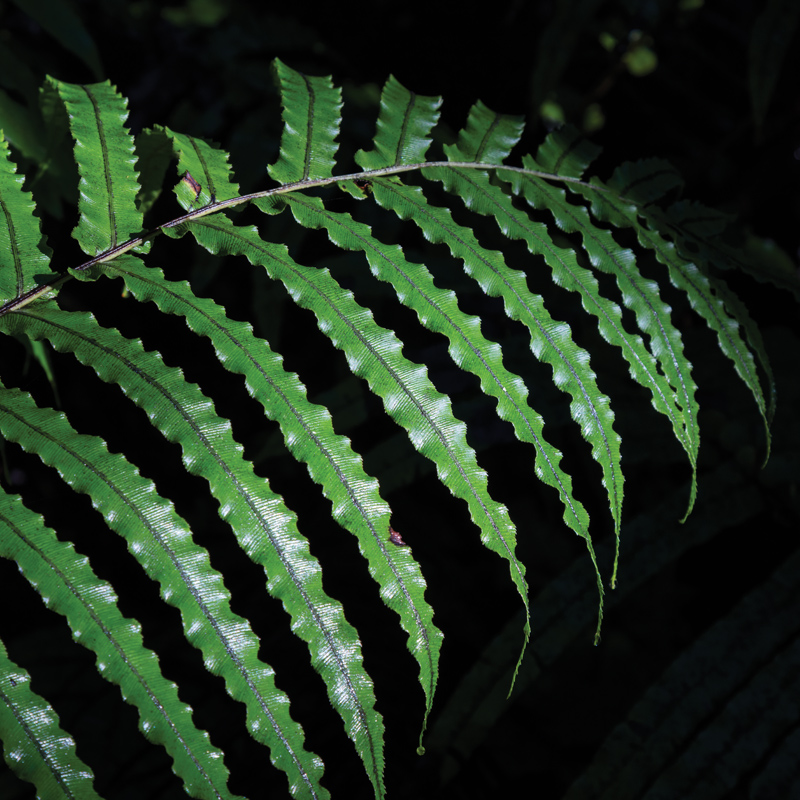cris·pate | /ˈkriˌspāt, -spə̇t/

To British ears, this may sound like a toddler’s admission of guilt when all the potato chips have mysteriously disappeared. It is in fact the botanical adjective for curled or crinkled edges of leaves and petals. Derived from the Latin crispus, meaning curly, crispation is a common evolutionary trait employed by a broad range of plants – from the leaves of the humble curly dock (Rumex crispus) to the beguiling blooms of rare orchids.
Leaf and petal margins are remarkably diverse with subtle differences often the key to identifying a plant species. As well as crispate, terms include entire (in botanical parlance, continuously smooth and regular), spined, comb-like, lobed, rolled-together, toothed, and hairy. Within these categories, there are further combinations and variations such as the hairy toothed flannel weed (Sida cordifolia). Amongst the tooth-edged species alone, the subcategories include crenate (obtusely toothed), lacniolate (finely toothed), and serrate (toothed edges that are themselves toothed).
The purpose of these evolutionary variations is hard to pin down, but leaf and petal thickness, length of development in the bud, vein geometry, and hydraulics are all likely to play a role. Climate is also a factor, with smooth leaf margins being more common in the tropics and the tundra whilst non-entire variations dominate in temperate regions. It’s theorised that the greater surface area of leaves with non-entire margins allows temperate plants to get a jump start on photosynthesising, allowing them to make better use of their time in the sun.
Introduction Aeolian Alpenglow Apricity Asperous
Benthos Crepuscular Crispate Crown shyness
Desire lines Dreich Endragoned Edgelands
Frondescence Fumarole Gluggaveður Gossamer
Karst Komorebi Lawrence Long acre
Machair Monkey’s wedding Moonglade
Psithurism Quartz Rakuyou Roaring forties
Snag Soft estate Specular, diffuse and pellucid
Spoondrift Steam fog Swash zone Sylvan